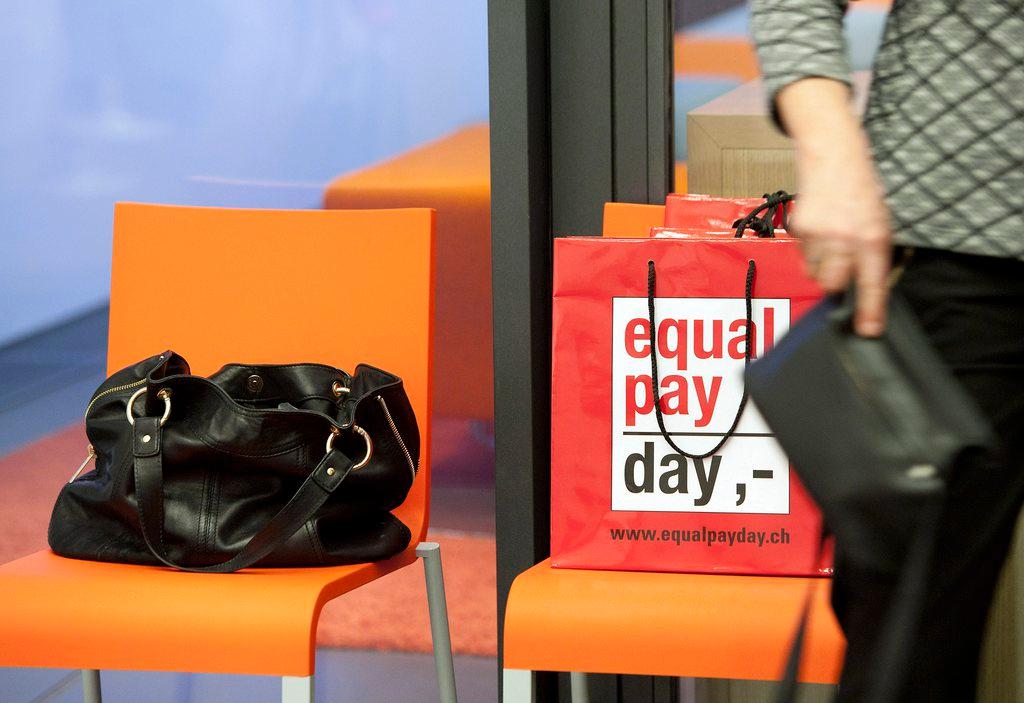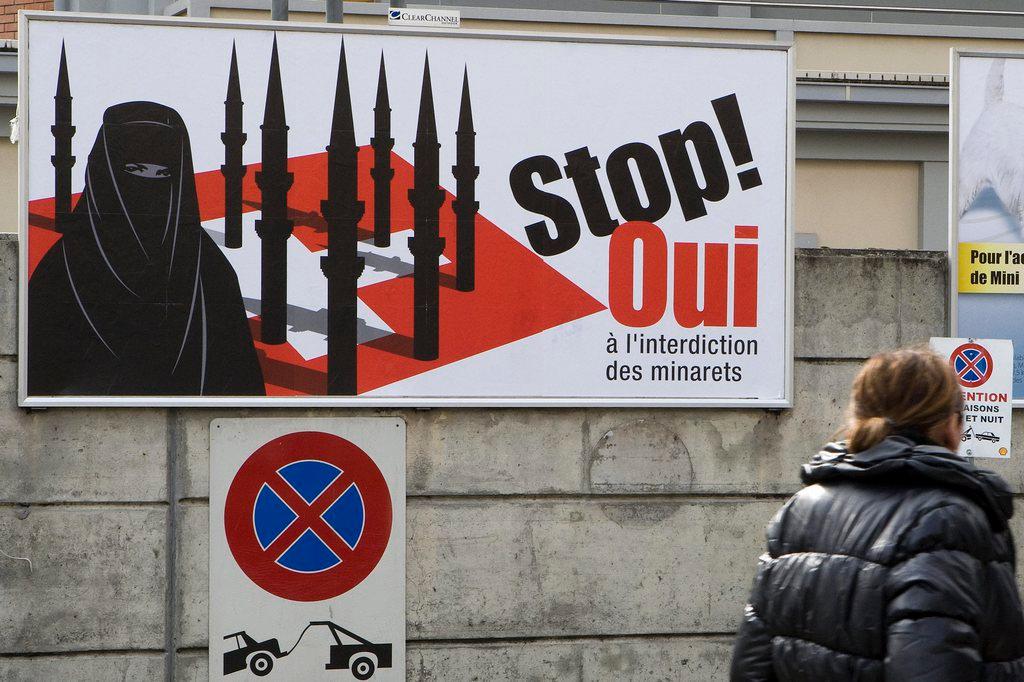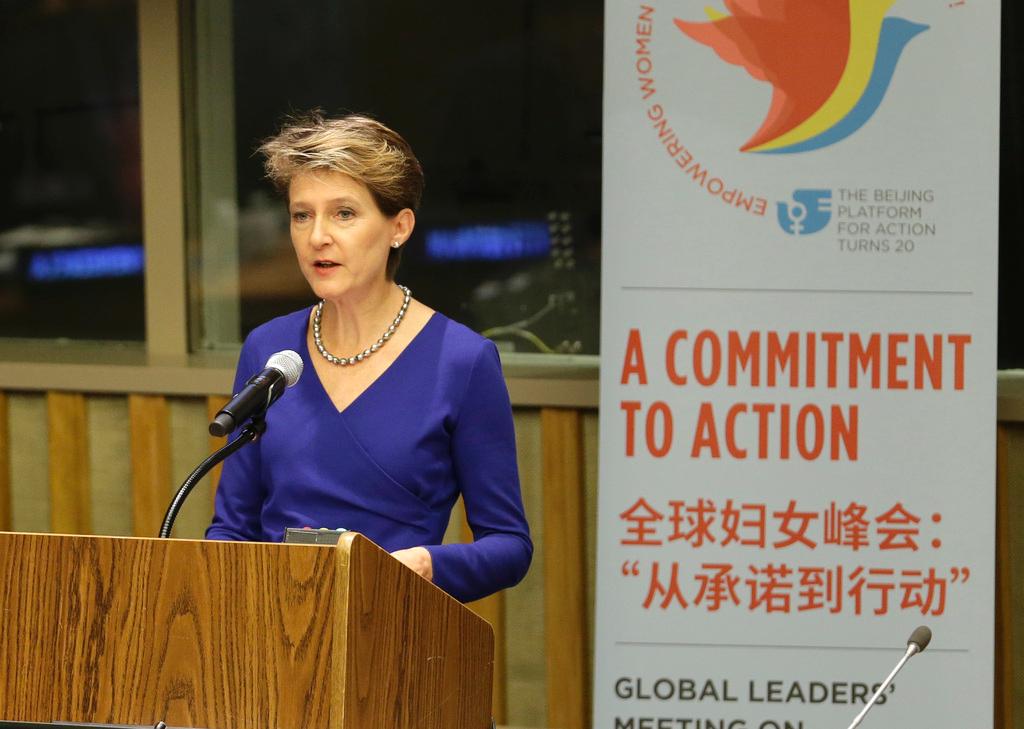Workplace gender gap fuels Switzerland’s plunge in global index

Switzerland has dropped ten places in an international gender gap index to position 21, lagging behind the Nordic countries in terms of progress. The world of work and educational choices are factors in its decline.
In the World Economic Forum’s Gender Gap Index 2017, Iceland remains the world’s most gender-equal country, a position it has held for nine years.
The Index, released on Thursday, examines differences between men and women across the areas of health, education, economy and politics in 144 countries. Overall, the 2017 report found that the global parity gap had widened in all four areas for the first time since it was first conducted in 2006. At the current rate of progress, the global gender gap will take 100 years to close, said the Geneva-based World Economic Forum.
Switzerland has been ranked quite highly in the index for several years, having closed 74% of its economic gender gap and ranked 11th last year and 8th in 2015. However, it is not keeping pace with the progress made by other countries, says Saadia ZahidiExternal link, Head of the Education, Gender and Work System Initiative at the World Economic Forum (WEF).External link
“The Nordic countries are maintaining their top position in the rankings because they are continuing to make progress every year, so their percentages and scores have been going further up, whereas Switzerland has pretty much flatlined,” she explains.
For example, Switzerland is just average when it comes to the number of female parliamentarians, notes Zahidi. And the country dropped from first to 31st in an index of economic participation and opportunity for women.
“It is a huge discrepancy compared with other advanced economies to only have 47% of white-collar roles occupied by women in Switzerland,” she says. “In most economies around the world there is a reverse gender gap with more women than men occupying these professional and technical positions.”
Zahidi also points out that only 35.6% of leadership roles in Switzerland such as legislators, senior officers and managers are held by women, making the country 43rd in the world in this category.
Education
Recently, debate arose in the Swiss mediaExternal link over the discrepancy between girls’ success at school over boys and their lack of upward mobility in the workplace. Statistics show that in Switzerland, girls earn more leaving diplomas from academic high schools and more often progress to university but remain underrepresented in leadership and white-collar roles, as the Gender Gap Index pointed out.
Zahidi said that girls’ higher educational attainment was pretty much consistent around the world compared to men, whether in advanced or emerging economies. However, unlike in Switzerland, that success tends to extend to the workplace.
So why the Swiss exception? Several analyses in the press have pointed to the fact that women in Switzerland often choose the humanities and social sciences as courses of study instead of economics or science and technology, fields more likely to lead to jobs with higher levels of responsibility.
WEF also finds many women working in the global education and non-profit sectors, for example, but far more men in Information and Communications Technologies (ICT) fields, a high-growth sector slated to create new highly skilled positions. The issue of having a gender-balanced pipeline in this sector should be addressed, said Zahidi.
WEF reported that Switzerland has one of the world’s widest gender gaps for graduates in ICT fields, where women represent only 13% of the total number of male graduates.
No level playing field
In general, companies around the world fail to offer a level playing field for women, the Gender Gap Index showed. Zahidi says that public-private collaborations or exchanging information about best practices could help address the issue.
Finally, the distribution of care work also exacerbates gender gaps, according to the WEF index.
“There is a paid work gender gap and there is an unpaid gender gap, basically the fact that are lot more women are spending a lot more of their day on unpaid work like family responsibilities than men,” Zahidi explains.
“In some cases it’s about awareness and cultural change that takes time to put in place but some of it is about very specific policies related to child care, school hours, paternity leave and maternity leave.”
Swiss voters and politicians regularly debate policies for more after-school care options, longer paternity leave and ways to address its expensive child care.
The education gender gap
Statistics highlighted by the Tages-AnzeigerExternal link newspaper show that last year, 43.6% girls in Switzerland obtained a secondary school leaving certificate from an apprenticeship or academic high school compared with 33.1% of boys – a discrepancy that has strengthened over the past 15 years. Until the 1990s, there were more boys gaining this qualification.
Experts have pointed to a change in attitude towards women pursuing their education as an explanation, coupled with the school system being adapted to girls during their teens (girls typically show higher levels of concentration). Some say the type of teaching used, such as group work using social skills, can favour girls.
However, this dominance does not translate into the workplaceExternal link. Boys tend to choose subjects like economics, technology and science that lead them into higher-responsibility jobs. More women opt for studies in the humanities or social sciences (half of those at university, for example) which tend to offer fewer advancement opportunities. Women are also more likely to work part-time or take breaks from work for family reasons.

In compliance with the JTI standards
More: SWI swissinfo.ch certified by the Journalism Trust Initiative




You can find an overview of ongoing debates with our journalists here. Please join us!
If you want to start a conversation about a topic raised in this article or want to report factual errors, email us at english@swissinfo.ch.